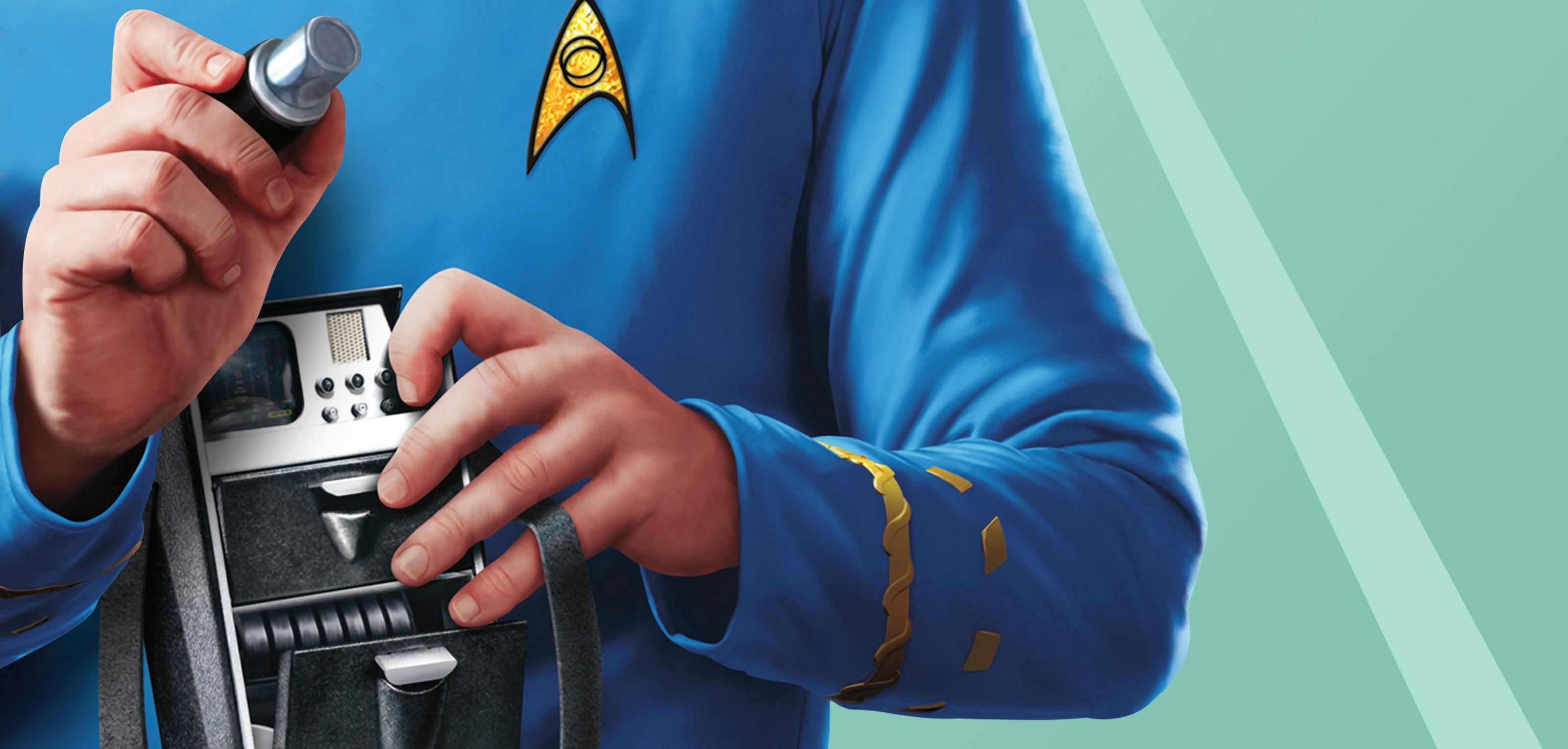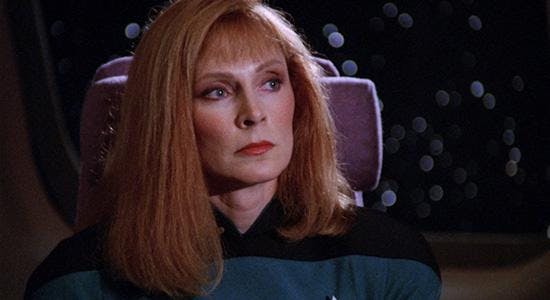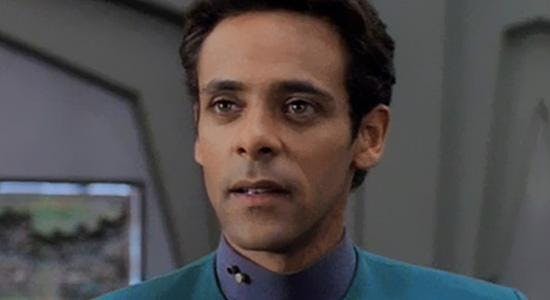
startrek.com
The final frontier is not for the faint of heart. The dangers inherent in exploring strange new worlds are not limited to hostile alien species and uncharted planets. Radiation, unknown pathogens – not to mention phaser burns and blasts – these are just a few of the medical risks to which Starfleet crewmembers are exposed on a near-constant basis across the entire Star Trek franchise. Fortunately for our intrepid starship crews, their health has been left in the hands of the best experts available: the ship’s Chief Medical Officer. From series to series, each doctor has taken a unique approach to treating those under their care, including often non-compliant commanding officers and the occasional injured alien, all while upholding their own Hippocratic Prime Directive: First Do No Harm.

Naturally, Dr. Leonard “Bones” McCoy (DeForest Kelley) of Star Trek: The Original Series set the standard for future CMOs, despite the fact that he did not attend Starfleet Academy. Though he frequently demonstrated a certain abrasiveness in his demeanor, he is often referred to by fans as the soul of the TOS trio. His no-nonsense, sometimes gruff bedside manner belied a deep compassion for all those around him – a common trait among his successors on the subsequent series. Indeed, in a post-scarcity future, what other reason could there be for pursuing a career in medicine, if not to help and heal others? However, his compassion was well tempered with a pragmatic streak.
Mistrustful of technology and realistic about his own abilities, Dr. McCoy was quick with an honest take on the odds of success when attempting unpracticed medical procedures and unstudied alien physiology. Luckily for those onboard the Enterprise, his endeavors were successful more often than not, perhaps in part by his deep respect for all life and his willingness to get his hands dirty. Though still in contact with Starfleet Command, the TOS crew was often at odds with the uncharted regions of space in which they found themselves… And who better to patch them up after a skirmish than an old country doctor who shares their captain’s disregard for convention?

If Dr. McCoy is the archetypal father of medicine in the Federation, then Dr. Beverly Crusher (Gates McFadden) is surely the mother. With a warm and nurturing personality, it’s easy to relegate Dr. Crusher to a purely maternal figure, but that would be doing her a disservice. She is a patient advocate and her ethics are sacrosanct, possibly even more so than her contemporaries. Unafraid to stand her ground – even when those in command disagree with her moral viewpoint – she repeatedly demonstrates an extraordinary bravery, placing the rights and well-being of her patients above her devotion to science, and even Starfleet. Dr. Crusher, as the first woman CMO, gave the Star Trek: The Next Generation writers a voice to a counter balance to Captain Picard’s philosophical musings, while blending Dr. McCoy’s compassion with gentility and a more modern approach to medical treatment.

And then there’s Dr. Julian Bashir (Alexander Siddig). In keeping with Star Trek: Deep Space Nine’s exploration of character’s internal motivation and personal journeys, Dr. Bashir is perhaps the first real departure from TOS-style character development. Fresh out of Starfleet Medical, he is young, ambitious, and optimistic to the point of bordering on naïvete, as well as a brilliant physician and surgeon. He is, however, not without flaws -- despite the best efforts of his parents to ensure his professional success by illegal genetic augmentation. His brilliance comes with a price: arrogance. This unlikely trait is rooted in that common thread among Starfleet doctors, compassion and a desire to preserve life. Like his predecessors, Dr. Bashir holds all life sacred, even that of the Federation’s enemies. His earnest drive to save all those he encounters sometimes blinds him to the reality of the situations in which he finds himself; he assumes that if he can not cure someone, then it is not possible at all. Even so, he usually refuses to believe that any case is hopeless. By juxtaposing his optimism with his presumption, Dr. Bashir is given a complexity and depth of character that make him more relatable to the audience. Like so many of us, his good intentions sometimes get the best of him. As such, he is able to reflect the internal conflicts that exist in day-to-day life, not just the realm of science-fiction.

Alternatively, what could be more science-fiction than an artificial intelligence? Star Trek: Voyager’s Emergency Medical Holographic program, also known as the EMH or simply the Doctor (Robert Picardo), is a highly sophisticated, adaptable simulation of a medical professional, but a simulation nonetheless. Programmed with a veritable encyclopedia of alien and human medicine, the Doctor has plenty of practical knowledge – maybe more than any of his biological counterparts, in fact – but he does not have the benefit of a personal history, a fact which impedes his early attempts to treat and even exist among Voyager’s crew. However, though he was meant as only a supplement to the ship’s medical team, being lost in the Delta Quadrant and isolated from outside aid and unable to resupply regularly, the Doctor soon finds that his adaptive programming can be an advantage.
In fact, despite being a computer program, he seems to have an almost innate aptitude for innovation, combining known medical treatments with new techniques of his own devising. Necessity is the mother of invention, after all, and a need to provide care for patients with extremely limited resources is certainly going to require some creative thinking. While sometimes used as comic relief by Voyager’s writers, the Doctor displays a beautiful capacity for personal growth and imagination, two traits that served him well as the ship’s only real source of medical care.

Star Trek: Enterpriseoffered viewers their first alien CMO, Dr. Phlox (John Billingsley). A Denobulan physician assigned to the Enterprise by the Interspecies Medical Exchange, Dr. Phlox is open-minded and non-judgmental, which, when combined with the soothing cadence of his speech patterns, makes for an excellent bedside manner. Like Dr. McCoy, he does not shy away from the reality of difficult situations. He is able to be professionally detached when needed, but this peaceful alien doctor is hardly uncaring. He is also an expert pharmacologist and though his menagerie in sickbay may be unorthodox, his broad knowledge and unconventional methods allow him to provide exemplary care for the Enterprise crew.

Regrettably, Star Trek: Discovery’s Dr. Hugh Culber (Wilson Cruz) died before we really had the opportunity to see how he measured up compared to his predecessors in terms of his personal medical philosophies and practices. Of course, anything is possible in the world of Star Trek; maybe we will yet have the chance to see him saving lives in deep space.
Since its inception, Star Trek has portrayed a vision of what the future of humanity could be if we only embraced that most lofty of ideals, compassion – and nowhere is this trait displayed more clearly than in the CMOs. From the progenitor of Starfleet medics, Dr. McCoy, each character has orbited a common theme: respect for life and the desire to heal. While each doctor has different strengths that inform the way they approach medicine, their shared perspective when it comes to relieving the suffering of others both anchors them and elevates them. Bravery, determination, inventiveness – these are the true tools of Starfleet CMOs and they represent the best that humanity can be.
Vean Chevalier is a trained psychologist and biologist who currently works as a zookeeper and specializes in observable behavior. She has been an avid Trekkie for more than 30 years.
Star Trek: Discovery Seasons 1-4 are currently streaming exclusively on Paramount+ in the U.S., the U.K., Switzerland, South Korea, Latin America, Germany, France, Italy, Australia, and Austria. Seasons 2 and 3 are also available on the Pluto TV Star Trek channel in Switzerland, Germany, and Austria. In Canada, it airs on Bell Media's CTV Sci-Fi Channel and streams on Crave. Star Trek: Discovery is distributed by Paramount Global Content Distribution.

